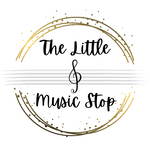How many of us LOVE playing and making music, but when it comes to performing we HATE it?! We have compiled some great tips from some accomplished musicians. Seasoned performers, Rob Buckland (saxophonist), Helen Davies (pianist) and Morgana Warren-Jones (mezzo-soprano) explore why we get nervous, what it is about being in a performance situation that gets our hearts racing, and most importantly what we can do to combat these nerves.
- First and foremost; thorough preparation! Think positively, feel that you are totally on top of the situation and try to keep as calm as possible. Different people will have different ways of coping and it’s all about finding what works for you. Practise as much as you are able to leading up to the performance. That way you know you've done everything you can and you can trust yourself, knowing that you're prepared.
- It can be useful to look at what it is that we are actually nervous about. Think about it: we are playing an instrument that we love, playing a piece of music that we love, and have spent ages working on and can play really well in practice, we have a performance in front of friends and family, and even if it’s general public, they have paid to come along and support, in a lovely venue, and yet we still get nervous.
- I would suggest that what we are really nervous about is that we don’t know what is going to happen when we start to play, if the instrument will speak, the first note will sound, and THIS tells us that we are not actually in control of the instrument, that we don’t actually understand how it works, and haven’t understood and mastered the fundamentals that we need to simply make it function. We can get so swept up in the art, the occasion, etc, but the reality is, we need to operate the machine 100% efficiently - we need to understand our breathing, how the instrument makes a sound, which parts of our technique control which parts of our sound, and then learn to rely on them. Our practice should be about replicating what it is that we want to happen in performance. Otherwise our subconscious - our fight or flight reflex - will kick in and pump us full of adrenaline because it knows you are scared and is doing its job which is to get us away from danger. We often hear the phrase - "I hope it goes well”. There should be no ‘hoping!’ You should confidently DO the things that you KNOW will get the results that you want.
- Another error that many of us make is not practising with exactly the same energy and commitment that we will want in performance. Our practice is at a lower energy level, so none of our techniques are pushed as hard as they will be in the performance. Therefore, we get ’nervous’ when we stand on stage because we are playing the piece in a way that we never have before - more energy, louder perhaps, faster, and with more adrenaline, whereas in practice we are relaxed, no adrenaline, and we play at 60% of the energy level we will use in performance. Therefore the two states (practice and performance) are unrelated, and therefore we get nervous - exactly as if we suddenly were given a completely new piece to read as we walked on stage.
"Practise what you want to present,
and then present what you have practised"
- Go and watch lots of other performances so you remember what it feels like to be in an audience. They're always on your side!
- Plan your outfit in advance and wear something you feel great in. You don’t want to feel self-conscious about the way you look on stage after working so hard.
